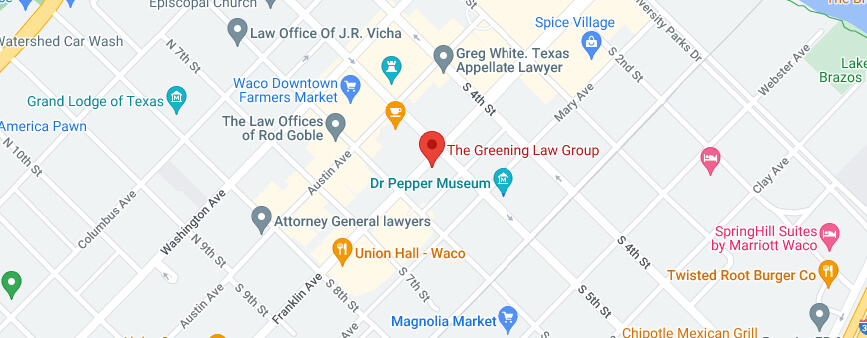Most crimes are “State” crimes, meaning they are violations of state law. States, through the legislature, create laws which, if broken, are prosecuted by the state, usually styled “The State of Texas v. Defendant.” There are also crimes which Congress, through its enumerated powers in the United States Constitution, has created laws which apply to the entire United States. The violation of these laws is tied to a federal issue. Some crimes are only criminalized in Federal law. Others, like bank robbery and kidnapping, are violations of both federal and state law.
State v. Federal – Jurisdiction
Based on the 10th Amendment of the United States Constitution, states have “general police power.” This power gives to state legislatures the ability to enumerate laws, as well as enforcing and punishing violations of those laws, also known as jurisdiction.
Federal courts have jurisdiction (meaning they can hear cases) over constitutional matters or over federal laws passed by Congress. State and local courts have jurisdiction over state and local laws.
The jurisdiction of state courts is broad, ranging from minor traffic violations to family disputes, robberies, broken contracts and many serious felonies. Most cases involving most citizens are tried in state courts.
The jurisdiction of federal courts includes such things as bankruptcy, copyright, patent, antitrust and some maritime matters. Also, federal courts have jurisdiction when the U.S. government is sued, or whenever the U.S. government is a party. Federal courts also have jurisdiction in cases involving citizens of different states when the amount of money in dispute is more than $75,000.
Federal jurisdiction is constrained to those crimes affecting federal interests. “Federal interests” is broadly defined to include:
- Crimes which took place on federal property or involving federal officers. This includes national forest, Indian reservations, military bases, as well as assaults on DEA or FBI agents as well as United States Judges.
- Crimes involving fraud, deception or misrepresentation to the Federal government or federal agencies, such as Federal tax fraud or Medicaid fraud.
- A crime where the defendant crosses state lines, for example kidnapping or drug trafficking from Texas to Oklahoma.
- A crime where the criminal conduct crosses state lines, for example fraud over the internet where the victims or perpetrators are from different states
- Immigration and customs cases, such as child pornography or human trafficking.
According to the United States Sentencing Commission, the most common federal criminal cases involve: Drug Charges, Fraud, Firearms Charges and White Collar Crimes. In Texas the most common state crimes are: Drug Charges, Theft, Aggravated Assault, Burglary and Robbery, according the Texas Annual Crime Report provided by the Texas Department of Public Safety.
State v. Federal – Procedure
There are many differences in procedure and prosecution for state and federal crimes. First, federal judges are appointed by the President, whereas state judges are appointed by the governor of that state and must run for re-election. Second, federal crimes are prosecuted by Assistant United States Attorneys and are styled, “The United States v. Defendant”. Additionally, federal crimes are investigated by federal officers, like the FBU, DEA, AFT, IRS or ICE agents.
Conversely, state crimes are prosecuted by a state district attorney or city/county attorney and are styled “State v. Defendant”. State crimes are investigated by sheriffs, state agents, or local police officers. Because of the nature and complexity of cases and the fact that there are far fewer federal prosecutions, those cases usually take longer to resolve.
State v. Federal – Punishment
Punishment for both types of crimes vary based on the nature and severity of the case. Many federal courts follow an advisory, the Federal Sentencing Guidelines, which recommends sentences for a defendant based on a variety of factors. Normally, federal penalties are longer than the state penalty for a similar crime, including longer prison terms, heftier fines, and other additional statutory penalties. Federal crimes, particularly drug crimes, carry an mandatory minimum. Federal prosecutors also, typically, have many more resources than state prosecutors and are much more difficult to negotiate with. Additionally, those convicted of a federal crime do their time in a federal prison rather than a state prison.
State and Federal Prosecutions: The Problem of Double Jeopardy
It is possible to be charged with both federal and state crimes at the same time for the same offense, however it is rare. If the conduct in question violates both state and federal law, there is no constitutional bar from being prosecuted for both. Known as “concurrent jurisdiction,” such shared federal and state jurisdiction can have significant impact on a case.
Though the Constitution’s Fifth Amendment shields citizens from so-called “double jeopardy,” meaning you can’t be put in jeopardy twice for the same offense, matters in shared or concurrent jurisdiction can provide rare exceptions. That is, if you are tried and acquitted of a state charge, federal prosecutors still could bring the charge to a federal court. Double jeopardy does not apply in this instance because of the “separate sovereign exception.” Because the federal government and state government are separate, they are free to prosecute you for crimes which violate each of their laws. A state may choose to create a law in their state which can prohibit a state prosecution for a crime which is already being prosecuted by the federal government.










